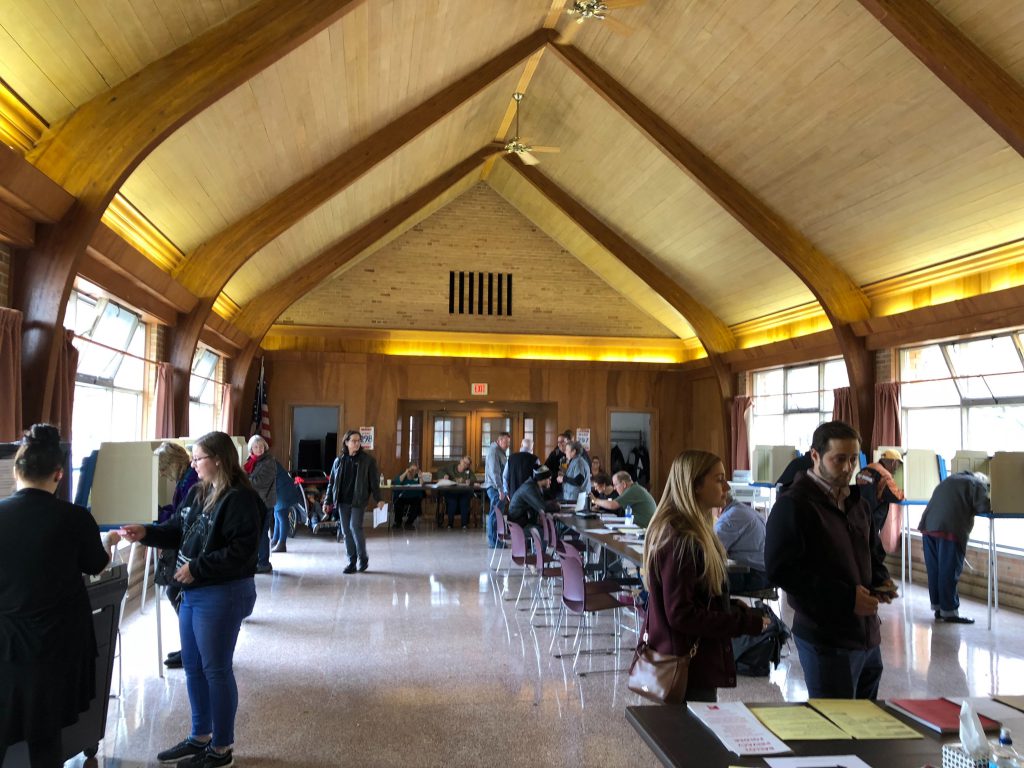The Long Fight for Voter Rights
Republican proposals just the latest in a long history of trying to restrict voter rights.
In this current debate about whether to expand or restrict voting, each side is probably spot on about the basic motivations of the politicians on the other side of the argument.
GOP legislators say expansion, such as expressed in a sweeping measure in Congress, H.R.1, intended to achieve nearly universal voting, is a power grab by Democrats.
There is, however, a qualitative difference between the two arguments.
Increasing access to voting is a quintessential American value, generally expressed through the maxim of one person, one vote.
Restricting the vote essentially says one person, one vote but only if the “right” person is voting the “right” way.
Which is to say, one side is for democracy to achieve its end, whatever political advantage it gains. I can live with that.
The other says it is also for democracy but, in practice, demonstrates a belief that not just any citizen should be trusted to operate the levers of democracy. I can’t live with that.
This argument is a long-running one, as old as the republic in fact.
One person, one vote?
This nation has long struggled with whose votes should be counted. We’ve come a long way from just white, male landowners as voters. Constitutional amendments 13 through 15, plus the 19th and the Snyder Act of 1924 correctly expanded our notions of citizenship generally and voting rights specifically for African Americans, women, the U.S.-born children of immigrants and Native Americans. Some of these amendments were alternately stymied and buttressed by various court rulings and by post-amendment legislation in the states and nationally, but we’ve come to a place where few would argue that only rich white men should be able to vote.
The current debate represents the next step in the evolution of the argument.
Yes, aside from the power-grab argument, Republican politicos insist that liberalizing the ability to vote is a blow against the integrity of the ballot. Unfortunately, they use as Exhibit A the infamous stolen presidential election of 2020.
There was no steal. In fact, states such as Georgia – whose election gave Democrats a 50-50 share of the U.S. Senate (control with a vice-presidential tie-breaker vote) – certified their election results.
Or as the Brennan Center for Justice explains, “extensive research reveals that fraud is very rare, voter impersonation is virtually nonexistent, and many instances of alleged fraud are, in fact, mistakes by voters or administrators. The same is true for mail ballots, which are secure and essential to holding a safe election amid the coronavirus pandemic.”
The myth about a stolen election is, in fact, a way to justify voter suppression for the purpose of clinging to power, effectively thwarting an electorate that is literally changing complexion — turning browner, and along with that change, more accepting of Democrats and Democratic policies.
Because the evidence of election fraud is thin to non-existent, the Republican effort to tighten voting requirements is tantamount to an admission that, failing to persuade a majority of the virtues of its policies, it will instead make it harder, or at least not make it easier, for many of them to vote.
So, maybe, when Republicans talk about the founding fathers and getting back to the original intent of our founding documents, they are longing for some of those early restrictions on voting based on race, gender and class. That is not fashionable nor politically palatable to say. So, instead, we are hearing a lot about “stopping the steal.”
New voter restrictions based on the lie that the election was stolen are really Jim Crow barely warmed over.
O. Ricardo Pimentel has been a journalist for about 40 years. He was most recently the editorial page editor for the San Antonio Express-News in Texas; the Milwaukee Journal Sentinel before that. He has also worked in various editing and reporting positions in newspapers in California, Arizona, Texas and Washington D.C., where he covered Congress, federal agencies and the Supreme Court for McClatchy Newspapers. He is the author of two novels and lives in Wisconsin.
Reprinted with permission of Wisconsin Examiner.






















